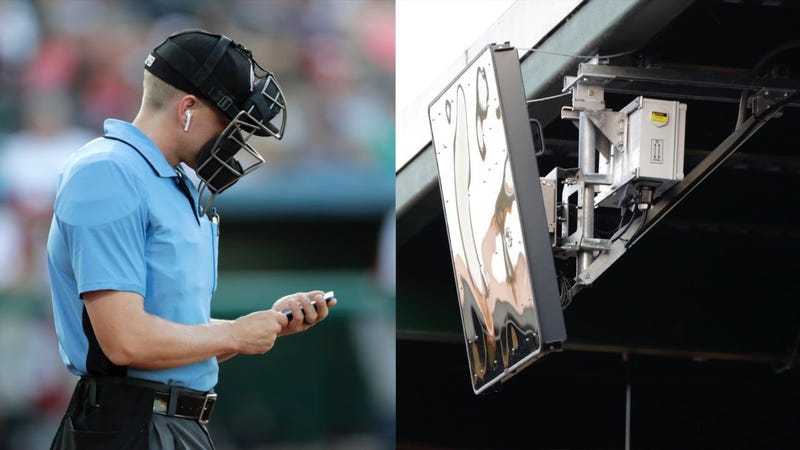
YORK, Pa. (KMOX/AP) — "Robot umpires" have arrived.
The independent Atlantic League became the first American professional baseball league to let a computer call balls and strikes at its All-Star Game earlier this year, now one team in the league will use the system in regular season games.
The Sugar Land Skeeters will begin use of the system on July 30.
It's called the Automated Ball-Strike System, a computerized device will share duties with human umpires, using radar technology to call balls and strikes. League officials say the system will offer a "reliable, precise, 'rule-book' strike zone for pitchers and hitters."
During the All-Star Game, home plate umpire Brian deBrauwere wore an earpiece connected to an iPhone in his pocket and relayed the call upon receiving it from a TrackMan computer system that uses Doppler radar.
"Until we can trust this system 100%, I still have to go back there with the intention of getting a pitch correct because if the system fails, it doesn't pick a pitch up or if it registers a pitch that's a foot-and-a-half off the plate as a strike, I have to be prepared to correct that," deBrauwere said before the game.
Umpires aren't out of jobs quite yet. They'll still be needed to make decisions on things like close foul balls and check swings, according to the league.
The umpires have the ability to override the computer, which considers a pitch a strike when the ball bounces and then crosses the zone.
MLB Commissioner Rob Manfred said there's no timeline on when the technology will be used in the majors.
"We need to see how it works, first in the Atlantic League and then probably other places, meaning other parts of minor league baseball, before it comes to Major League Baseball," Manfred said. "Kind of gets back to the question that I was asked earlier about the baseball, we hear all the time from players, why don't we have an electronic strike zone, why don't we have an electronic strike zone? We try to be responsive to those sorts of expressions of concern. We have spent a lot of time and money on the technology. It's not just to address player concerns. It obviously has broadcasting uses. That same technology can be used in our broadcast, which has value to our fans. But we feel it's incumbent upon us — people that play the game raised this as something that could make the game better. We kind of feel it's incumbent on us to figure out whether we could make it work. And that's what we're doing."
___
